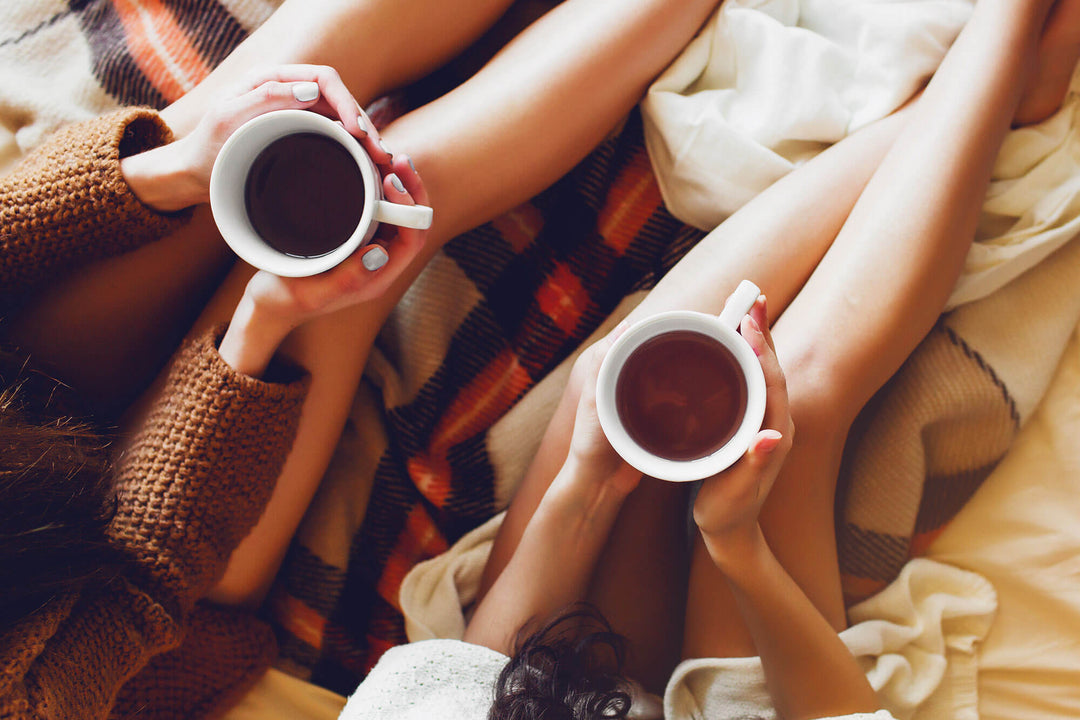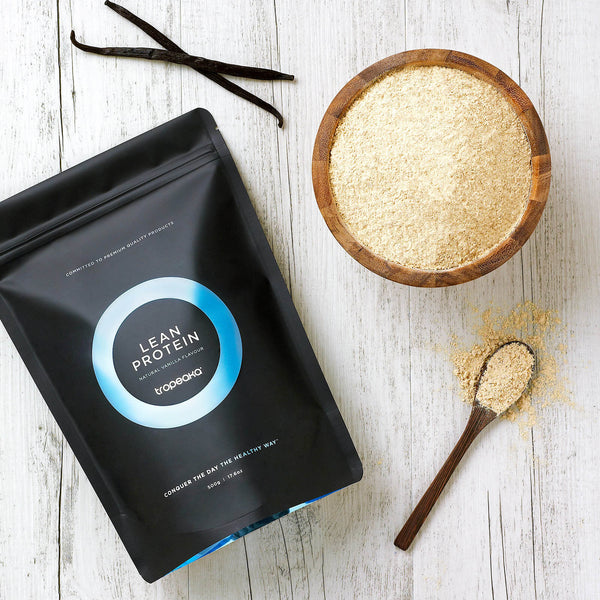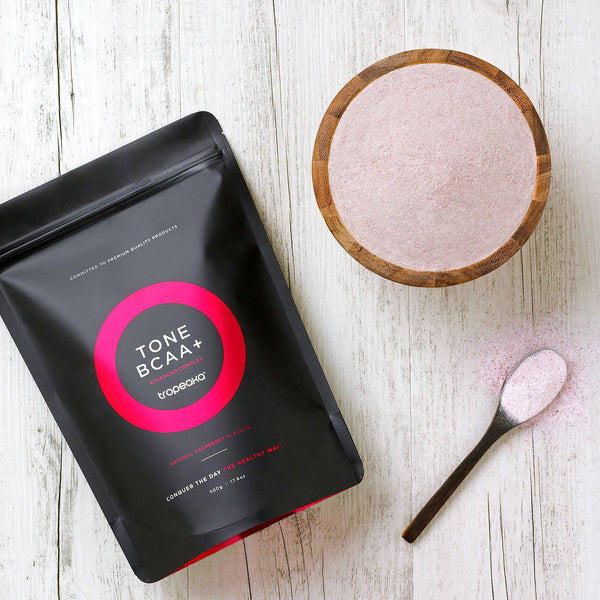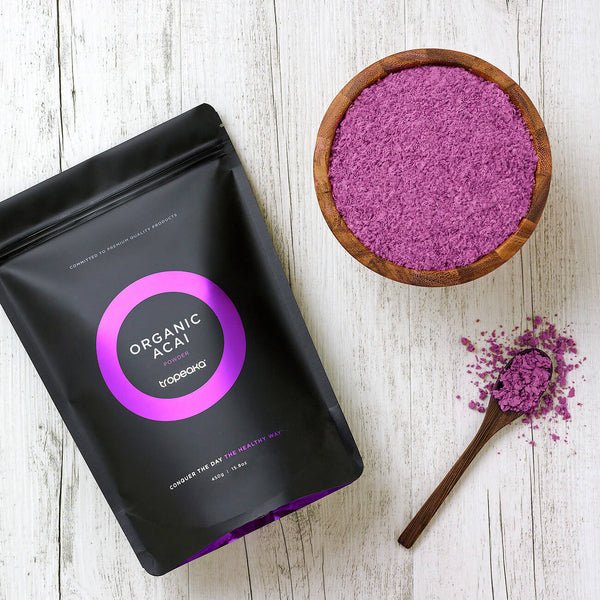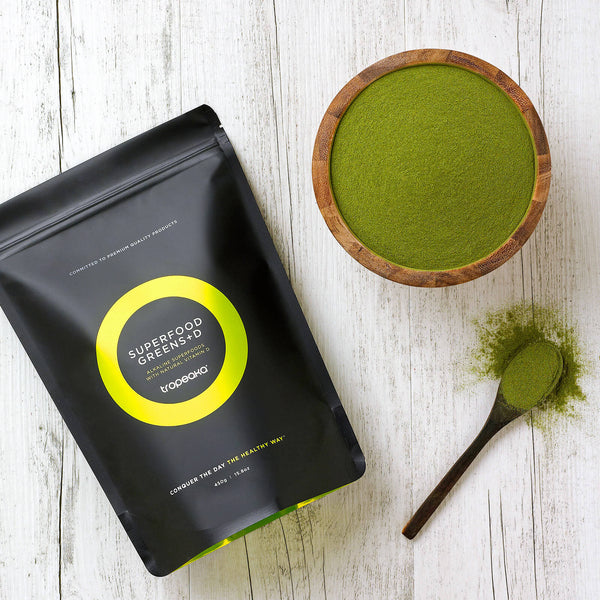Something as simple as a relaxing bedtime routine can dramatically improve how well we sleep, and healthy sleep supports so many other aspects of our wellbeing.
W
hen enjoyed as part of your pre-bed routine, the right herbal tea blend can physically and mentally prepare you for a great night of premium quality slumber; but have you ever wondered which herbal tea is best for sleep?
Herbal tea for sleep and relaxation
If you’re looking for an organic, naturopath-approved herbal tea for sleep and relaxation, Tropeaka Sleep Herbal Infusion is ideal! This is an expert-designed herbal tea for sleep that will calm your senses and ease you into a blissful night of rest and regeneration.
But before we dive into the details of this deliciously warming bedtime beverage, let’s first refresh our memories as to why healthy sleep is so important!
What happens when we sleep?
Throughout the night, your sleep is divided into 90-minute cycles of rapid eye movement (REM) and non-rapid eye movement (NREM) sleep which repeat throughout the night.
Most of your sleep is NREM, which happens in 3 stages:
N1: Light sleep when you are in between being awake and falling asleep. Your eyes may be closed, but it’s easy to wake you up.
N2: When you become disengaged from your surroundings, and your body temperature drops.
N3: The deepest sleep stage where hormones are released, tissue growth and repair takes place, the immune system is strengthened, and your energy is restored. During N3, your blood pressure and heart rate also drop for a cardiovascular reboot.
REM happens every 90 minutes after falling asleep and is the sleep stage with the highest brain activity. We dream during REM sleep, and this cycle enhances learning, memory, and emotional health.
What happens when we don’t get enough sleep?
After being awake for 16 hours, we need 7-9 hours of good quality sleep to restore the mind and body to a healthy level of functioning.
If we’re awake for more than 16 hours, we begin to experience the first signs of mental and physiological deterioration, such as irritability, yawning, excessive sleepiness and fatigue.
However, chronic sleep deprivation can interfere with many of the body’s systems, including;
- Central nervous system: chronic sleep deprivation can disrupt how your body usually sends information, leaving the brain unable to make memories from new experiences.
- Immune system: sleep-deprived people are more likely to get sick, and it may take longer to recover from illness.
- Respiratory system: sleep deprivation leaves us more susceptible to respiratory infections, as well as making existing respiratory conditions worse.
- Digestive system: the gut microbiome can be thrown off balance, and the tissues of the digestive system become prone to inflammation.
- Cardiovascular system: blood pressure, blood sugar and inflammation increase. Sleep deprivation impairs the body’s ability to heal and repair the blood vessels and heart.
- Endocrine system: if our sleep is disrupted, so is our hormone production (and vice versa!)
Cycles, routines and rituals
All the different processes and functions within the body are regulated by an internal 24-hour clock known as the circadian rhythm. A healthy and consistent sleeping pattern is at the centre of your circadian rhythm. So it's no surprise that sleeping well is crucial for healthy immune function, a healthy nervous system, good cognitive function, fast exercise recovery, balanced hormones, insulin sensitivity, good gut health, and so on.
When the cycle is broken and you lose your rhythm, everything starts to feel a little off, so maintaining consistent routines and rituals is an essential key to feeling your best. If you’re one of the many who suffer from inadequate or poor quality sleep, you’ll be relieved to know that there are many scientifically-backed ways to combat your bedtime blues.
Are you ready to optimise the unconscious third of your life so you can thrive while you’re awake? Here are 4 easy ways to start sleeping better today:
1
Avoid caffeine intake after 12 pm
There’s always some controversy around a cup of coffee. One reason for this controversy is that caffeine affects REM sleep, which is when we dream, our cells are replenished, and muscle tissue is repaired.

Choosing a herbal tea for sleep may be the healthy replacement your mind and body will thank you for! Here are another 5 reasons to trade your coffees for herbal teas.
If you must use screens before bed, be sure to use the night option
2
Avoid using phones and laptops right before bed
If you usually watch a movie or scroll social media to wind down before bed, perhaps you could pick up that great book you’ve been meaning to read instead?
However, If you must use screens before bed, be sure to use the night option that changes screen colour and minimises the melatonin-suppressing blue light.
3
Stick to a regular sleep schedule
Humans are creatures of habit, which is why something as simple as waking up and going to bed at the same time each day can have such a positive impact on our sleep and overall wellbeing.
Try to keep a regular sleep schedule throughout the week, and avoid sleeping in for more than one hour extra on the weekends (except on special occasions, of course!). This way, you can avoid throwing off your sleep schedule and disrupting your circadian rhythm so that you can enjoy the long list of health benefits that come with honouring your most fundamental natural cycle.
Herbal tea for sleep and relaxation help you wind down and sleep soundly
4
Drink herbal tea for sleep and relaxation
Who doesn’t want to enjoy a delicious, warming beverage before bed without having to worry about staring at the ceiling all night? Not only does herbal tea for sleep and relaxation help you wind down and sleep soundly, but it can also help with exercise recovery and actively help restore hormonal balance.

The real magic happens when different therapeutic herbs are blended together. There are herbal infusions to calm your senses and send you off to a blissful nights sleep; to cleanse the system and free up more energy in the body; even teas to protect you from seasonal change by supporting a healthy immune system.
The best herbal tea to drink before bed is this soothing blend of chamomile, lemon balm, passionflower, lavender, skullcap root, rose petal and orange peel. Add this organic infusion to your nighttime ritual and enjoy the taste of sleep before your head even hits the pillow!
So, let’s get to know the ingredients in Tropeaka Sleep Herbal Infusion, AKA the best herbal tea for sleep.
Chamomile
A herb that comes from the daisy-like flowers of the Asteraceae plant family, chamomile is the most well-known herbal tea for sleep and relaxation. It has been consumed for centuries as a natural remedy for several health conditions and is loaded with the antioxidants that can help you stay healthy.
One of these antioxidants is called apigenin, and it binds to specific receptors in your brain to promote sleepiness and reduce insomnia, so chamomile is a must-have ingredient in a herbal tea for sleep disorders!
Flavones are another class of antioxidants in chamomile that can help lower cholesterol and blood pressure to improve your overall heart health.
Due to its anti-inflammatory properties, chamomile may promote blood sugar control and improve your digestion, while protecting against diarrhoea, stomach ulcers, nausea and gas.
Lemon Balm
Lemon balm is a lemon-scented herb from the mint family. It’s native to Europe, North Africa and West Asia, and its use dates back to the 14th century. Traditionally, lemon balm has been used to treat a range of disorders affecting the digestive tract, nervous system, and the liver.
Lemon balm is an effective digestive tonic and a popular herbal tea for sleep disorders like insomnia, but it’s also used to improve mood and cognitive function, and to relieve stress and anxiety. There’s also research to suggest that lemon balm can be used to relieve menstrual cramps and PMS.
Passionflower
A perennial climbing vine native to southeastern North America, passionflower has historically been used in treating anxiety, insomnia, seizures, and hysteria. This herbal tea for sleep and relaxation uses the flowers, leaves, and stems of the plant.
There is plenty of scientific research that supports passionflower’s effectiveness in treating anxiety and insomnia, as well as nervous disorders.
Lavender
Lavender is another flowering plant in the mint family that’s believed to be native to the Mediterranean, the Middle East, and India. The history of lavender’s therapeutic use dates as far back as 2,500 years when it viewed as a holy herb.
Medicinal uses of lavender tea include pain relief, wound healing, reducing anxiety, supporting immune function, detoxifying the body, reducing inflammation and relieving intestinal problems. And of course, lavender is a powerful ingredient in a herbal tea for sleep disorders.
Skullcap Root
Yet another flowering plant from the mint family, skullcap has been used in traditional Chinese and Native American medicine to treat a variety of ailments, including diarrhoea, anxiety, inflammation, insomnia and chronic pain.
In addition to reducing inflammation and anxiety, studies reveal that skullcap also has powerful antiviral and antibacterial effects.
Rose Petal
We all know them as a symbol of love and romance, but did you know that roses have been used for medicinal purposes for thousands of years? All roses are edible, can be used in tea, and are rich in polyphenols and other antioxidants that help neutralise free radicals and contribute to good health.
Hydrating and rich in vitamin C, rose petal tea is also known to help relieve pain and improve wellbeing during menstruation. The soothing aroma and natural sedative qualities of rose petal make it a key ingredient in the most effective herbal tea blend for sleep and relaxation.
Orange Peel
Although the peel of an orange is nowhere near as delicious as the juicy fruit inside, it’s packed full of goodness you don’t want to miss out on! Fortunately, orange peel tastes great in tea form so that you can get those flavonoids, vitamins A, C, B6 and B5, as well as calcium, riboflavin, thiamine, niacin, folate and dietary fibre!
A herbal tea blend with orange peel is excellent for your immune system, digestion, heart health, metabolism, and your skin. Orange peel is often used in herbal tea for sleep disorders because it contains compounds that can prevent the release of histamine, minimising allergic reactions and helping you get a better night’s sleep!
Now you know which herbal tea is best for sleep
Developing a pre-sleep ritual, or a series of bedtime habits is a great way to mentally and physically prepare yourself for great quality sleep, night after night. Now that you know which herbal tea is best for sleep, order your Tropeaka Sleep Herbal Infusion today!
